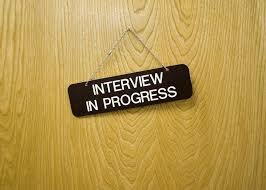
Whether you’re a recent graduate looking for your first break into PR, or a seasoned professional wanting to make your next move, job hunting can be a total drag. Here’s ten tips for finding your next role.
1) Set yourself a specific time for job applications. If you’re out of work, then treat it like a 9 – 5 job. Get up, make a cup of coffee, turn on your computer and start hunting. Resist the urge to turn on the telly – Jezza Kyle is far too tempting. Take a break for lunch and then get back to it until the end of the working day. If you’re already in a job then set aside an hour every evening.
2) Do your homework. Before you apply make sure you understand the role and the company you are applying to. Reflect your research in your covering letter and make sure each application is specific to that particular company. Standard covering letters go in the bin. If you are applying through a recruitment agency this is a little more difficult, but try to make your application as relevant to the role as possible.
3) Keep a record. A recent graduate once told me that he’d worked out it was taking him, on average, 33 applications to achieve one interview for a PR role. That’s a hell of a lot of applications but it is not surprising. Competition for roles, particularly at entry level, is fierce. I generally advise graduates to aim for twenty five applications per week, and those people who are already in jobs to aim for one application a day. With that amount of correspondence you need to keep a record of who you have written to, which position you were applying for, whether you had a response and any other info that might be useful – like a copy of the job advert or role specification so you can refer to it if you’re called for an interview. Admin is tedious, but it will make your life easier in the long run.
4) Be persistent. 90% of the companies you apply to won’t even acknowledge receipt of your application let alone give you feedback if you’re rejected. Don’t take it personally. Replying to job applicants takes a huge amount of time and administration and for some firms it’s really low on their list of priorities. As a rule of thumb, if you haven’t heard back from a company in two weeks, you are unlikely to be called to interview. Don’t give up though. It may mean you’re not right for that role, but other positions make crop up that are more suitable so keep applying.
5) Apply speculatively. If you apply for a specific job you are competing against all the other people applying for that role. If you write to a company speculatively here is less chance that you will be competing against others and that your letter will stand out. Make it clear what you are available for – full time, part time, temporary, permanent, contract, internships etc. Ask them to keep your details on file for any suitable vacancies and if you haven’t heard back from them in three months, write again.
6) Network endlessly. Use social network sites like Twitter, LinkedIn and Google+ to follow influential PRs and get yourself noticed. Go along to Tweet Ups, conferences and social events – lots of which are free to attend. Make a point of collecting business cards and connecting with the people you have met after the event.
7) Be realistic. If you’ve got two years of experience and are currently paid £25,000 a year, don’t apply for Director level roles paying £100,000. You’ll be wasting your time and that of the recruiter.
8) Dot the ‘i’s and cross the ‘t’s. Attention to detail is incredibly important when applying for jobs. Make sure you address your application to the right person, and spell their name correctly. Don’t just rely on spell check to pick up errors. Proof read your CV and covering letters several times before you press send, and make sure you attach the relevant documents to your email. Good writing and proof reading skills are required for most PR roles so it’s essential you can prove you have mastered the basics.
9) Pay it forward. If you spot a vacancy that would be great for a job hunting friend or acquaintance send them the link to the advert. Hopefully, they will return the favour.
10) Say thank you. If you get a personal response to your application – even if it is a rejection – write and say thank you. If you get an interview – even if you don’t get the job – write and say thank you. If someone introduces you to a contact who then offers you an interview, write and thank the referrer. Such a simple courtesy will make you stick in their minds and will make them more likely to recommend you again in the future. Thank you letters and emails are rarer than you might imagine and are a really easy way to build your reputation as a thoughtful and friendly person to work with.
Like this:
Like Loading...









